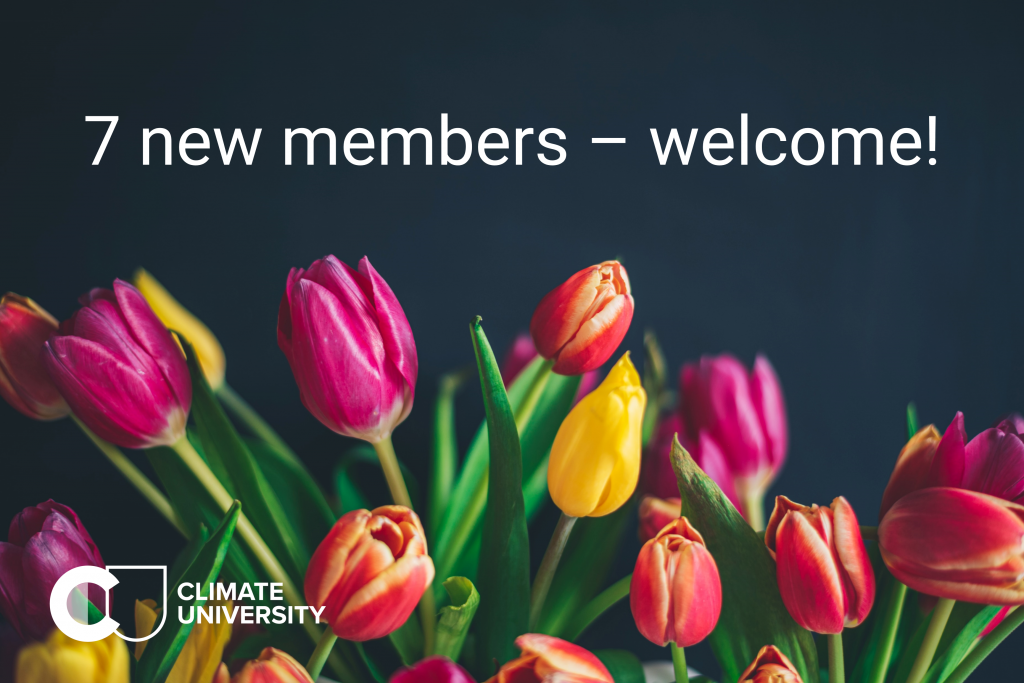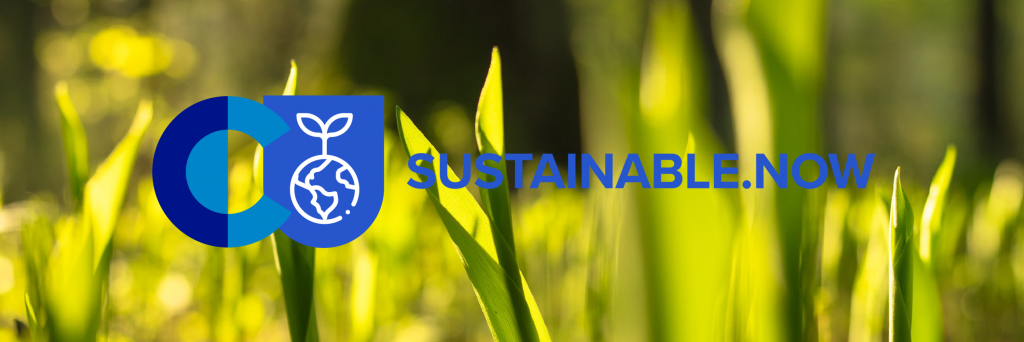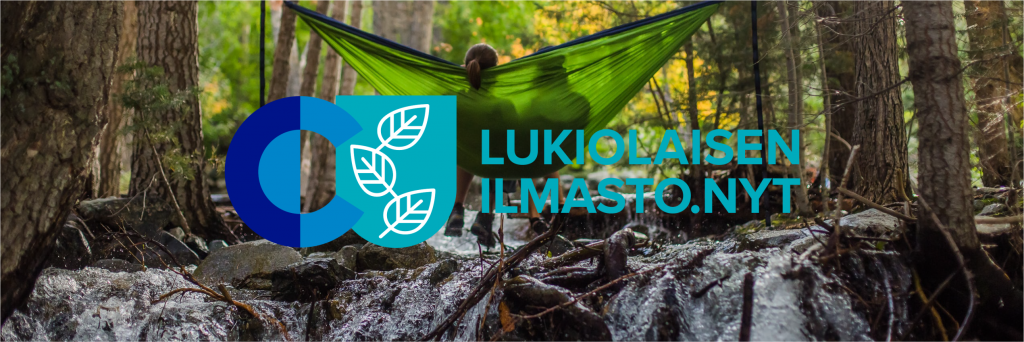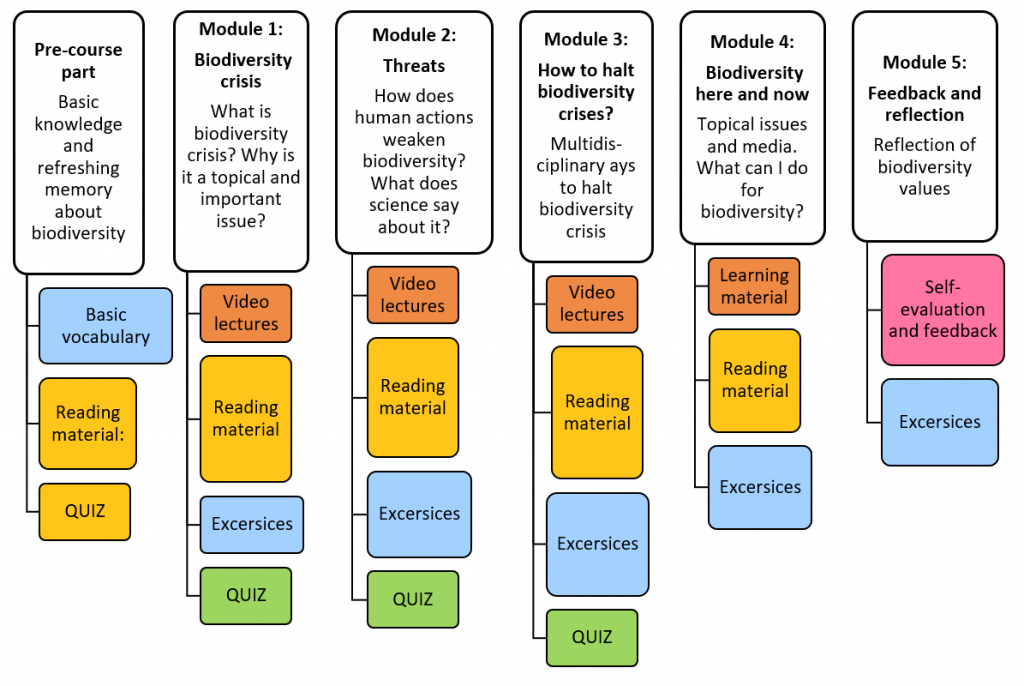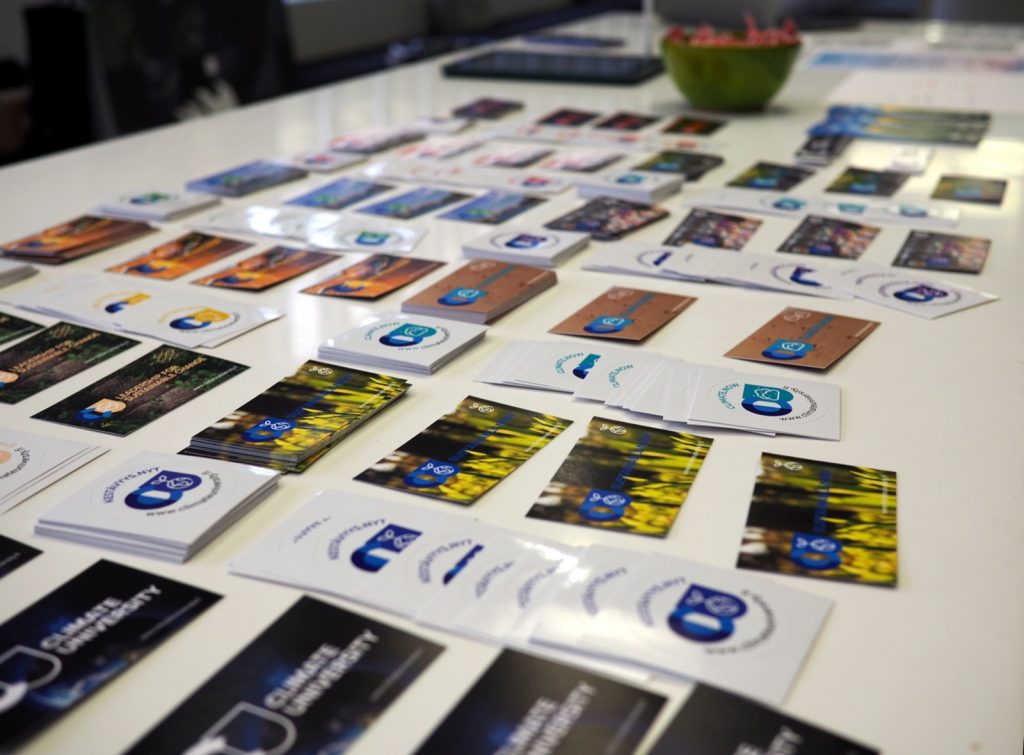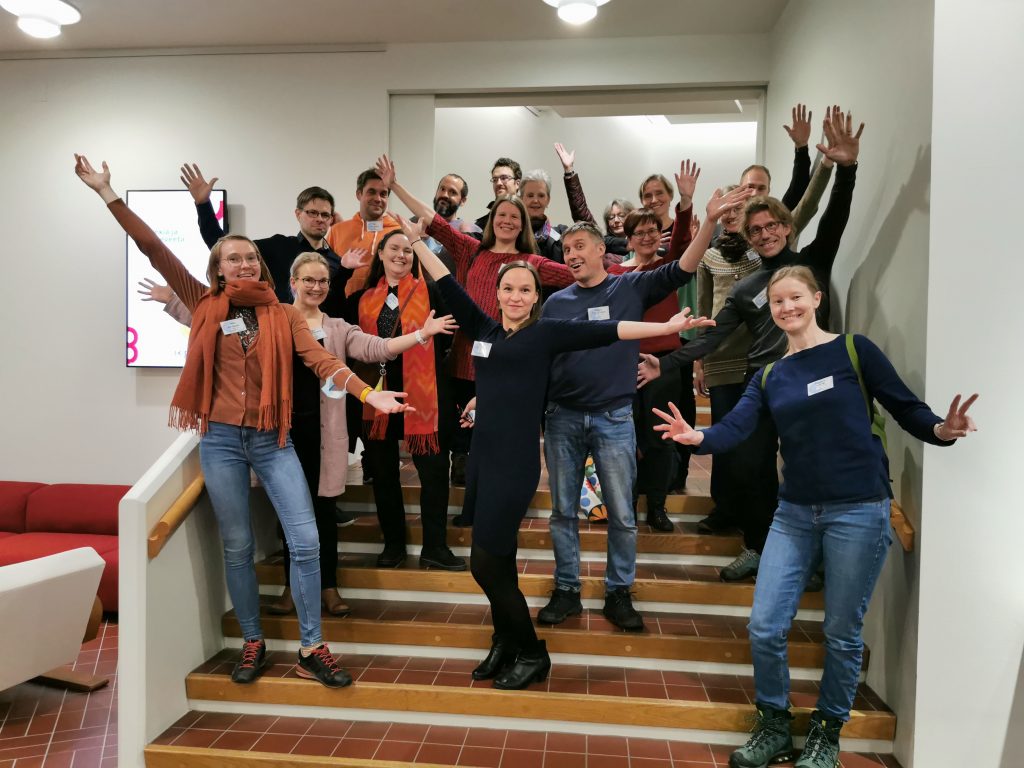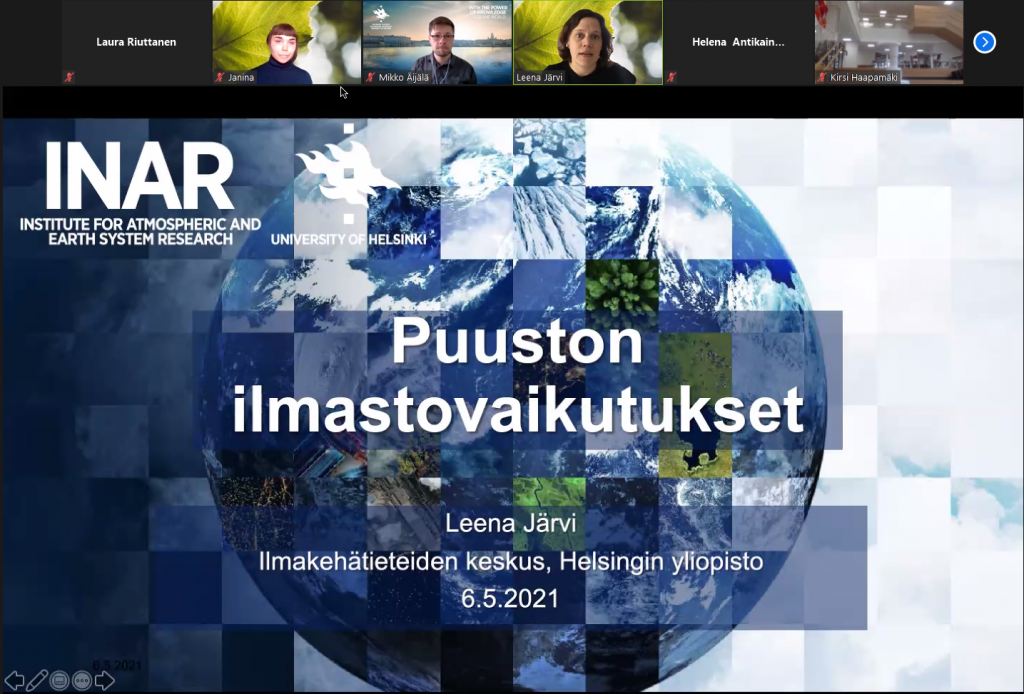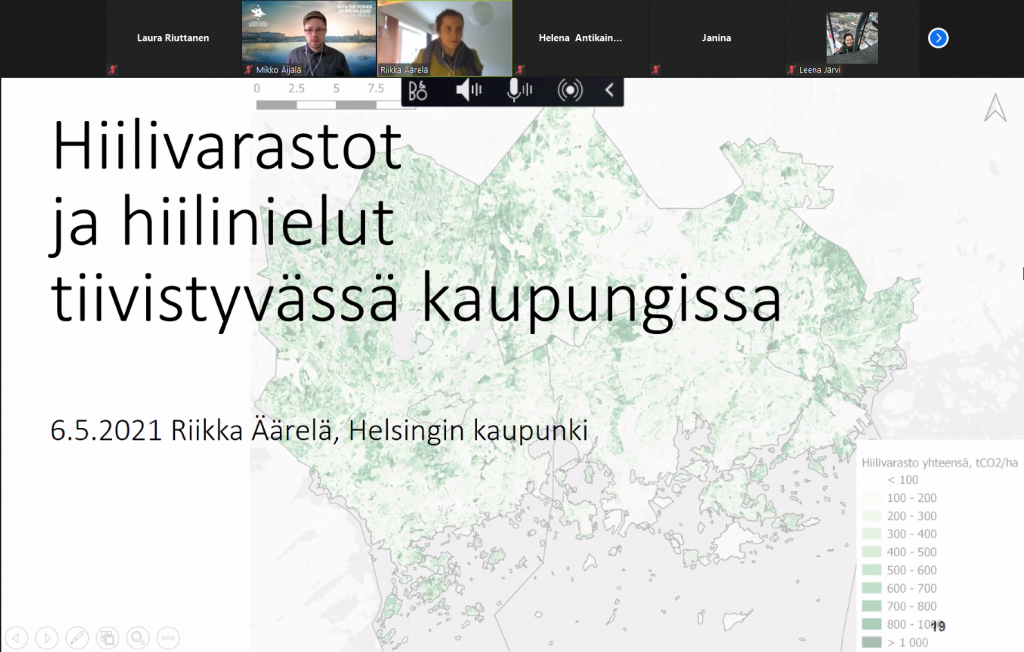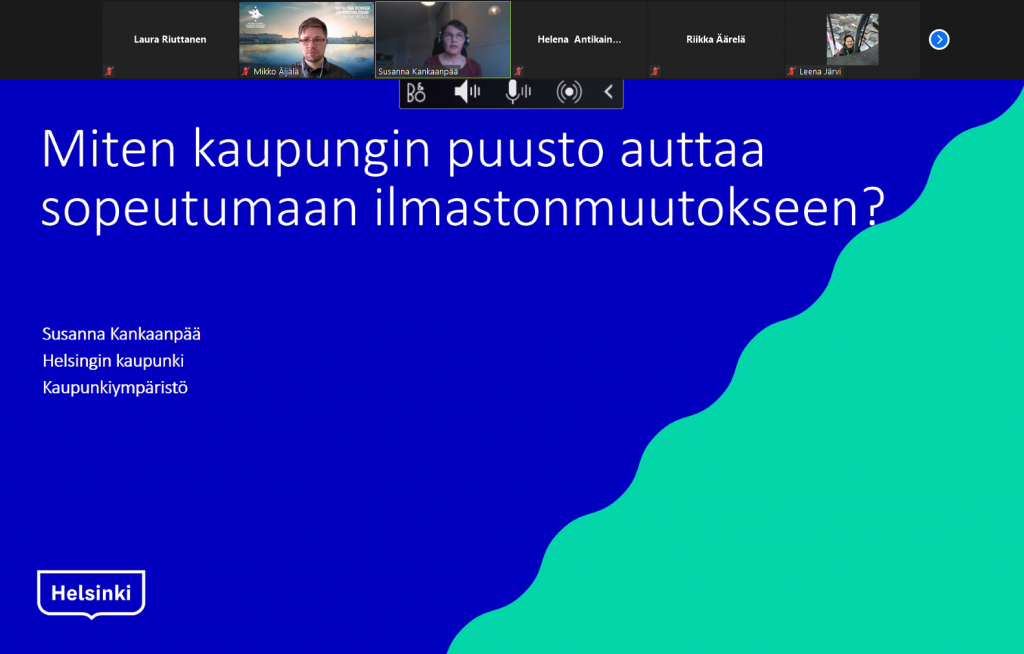The phenomenon of climate anxiety is nowadays much discussed in media (in Finnish: ilmastoahdistus, in Swedish: klimatångest). It is often characterized as related especially to younger people, and indeed many youth have recently spoken openly about their climate change anxiety. However, research has revealed that while the phenomenon is especially prevalent among certain groups of people, such as environmentalists and young adults, many different kinds of people feel various forms of climate anxiety. Often, climate anxiety manifests as worry or distress, but it can also feel very devastating: for example, people can feel that their future has been taken away from them.
There is evidence about climate anxiety from around the world and research is ongoing about the various forms and developments of this phenomenon. In a rare, nation-wide survey in Finland in summer 2019, 25% of the population recognized some kind of climate anxiety in themselves. Of the youngest age group in that survey, 15- to 30-year olds, the percentage was 33%. Stronger anxiety symptoms were reported by roughly 10% of the respondents.
In the Climate University course family, climate anxiety and climate emotions are discussed especially in two courses: SystemsChange.now and ClimateComms.now. The author of this blog, interdisciplinary eco-anxiety researcher Panu Pihkala, Ph.D., wrote materials for both of these courses.
Below, 10 major aspects of climate anxiety are discussed. At the end of the blog, a short bibliography of climate anxiety research is provided.
- Climate anxiety is part of the wider phenomenon of eco-anxiety. Eco-anxiety (sometimes written ecoanxiety) can result either from the awareness of the global ecological crisis or from a local ecological problem. Climate anxiety is that part of eco-anxiety which is significantly related to climate change. However, because the climate crisis is linked with numerous other social and ecological issues, the lines between climate anxiety and other eco-anxiety are often difficult to see.
- Climate anxiety is real: many forms of it have been found in research. It is sometimes claimed that only neurotic people feel climate anxiety, but research shows otherwise: there are many factors which influence the feelings of people. Exposure to climate disruption, for example, is a major factor, as well as young age.
- What is commonly called “climate anxiety” is actually a scale of various reactions and emotions. Anxiety is a relatively good shorthand term for these feelings, but it is very important to recognize that there are many other feelings and psychological states involved. These include fear, worry, stress, feelings of helplessness, grief, guilt, frustration, anger, and even trauma or depression.
- Climate anxiety is not primarily a disease; instead, it is an understandable reaction to the severity of the climate crisis. Some manifestations of climate anxiety are paralyzing and it would be important to help people to avoid them, but the overall phenomenon of climate anxiety (or, worry, or distress) should be valued as a caring response to the crisis.
- Since the word anxiety is used in various connotations, it is important to analyze what various people mean with “climate anxiety”. For some people, including many health professionals, “anxiety” brings into mind anxiety disorders. On the other hand, there is much research about anxiety as an emotion, which helps a person to encounter troubling uncertainty. Then there is a long-standing discussion about existential anxiety, which is caused by the fundamental, difficult questions of life, such as death, guilt, or feelings of meaninglessness. The wide phenomenon of climate anxiety has been found to include all of the above, depending on the case.
- People have often been silent about their feelings of climate anxiety or even denied them. As psychologists and many other scholars emphasize, it is difficult to encounter the climate crisis. Many psychosocial dynamics, such as socially constructed silence, have been present in relation to climate change and climate emotions. There is both recognized and unrecognized climate anxiety. People need safe spaces and emotional support to be able to encounter their difficult emotions. The phenomenon of climate anxiety is much older than the public discussion about it.
- The phenomenon of climate anxiety is interlinked with climate change denial and the challenges of climate change communication, education, and advocacy. Psychological dynamics such as distancing are commonly used to keep anxiety further away. In some cases, anxiety can generate denial or disavowal, but the phenomenon of climate change denial is complex and shaped also by intentional political actions. Since there are so different kinds of publics, climate anxiety presents profound challenges to communication, education, and advocacy. Threatening messages of “doom and gloom” paralyze many people, but careful “fear appeals” may motivate some others. The baseline is that the emotional dimensions of communicating should always be considered carefully.
- It should be remembered that experiences of climate anxiety are much shaped by various contexts and intersectional dynamics. For many people, there are profound sources of hardship and anxiety in their lives, much caused by structural problems and injustices. These kind of contextual factors greatly shape people’s feelings of climate anxiety. For many oppressed people, climate anxiety is “only” one part of the trouble they face. For wealthy people in industrialized nations, climate anxiety may be their first and foremost existential anxiety, but voices from other contexts need also be heard.
- Traditional instructions for coping with anxiety are only partly relevant in relation to climate anxiety, because the climate threat is very real. There is much that can be applied from established methods of coping with anxiety: new mental models and revised habits can help to reduce catastrophizing and rumination. However, the common method of de-emphasizing the actual seriousness of the threat is not particularly suitable, since the climate crisis is happening all the time and is scientifically predicted to grow worse. What is needed are skills which help a person to continue functioning amidst the uncertainties, and naturally climate action by all kinds of people.
- Experts recommend that coping with climate anxiety should include opportunities for efficacy, emotional support, and resilience building. It helps greatly if a person can feel that she/he can contribute positively, together with others, in building a more resilient world. However, the difficult emotions must also be lived through, or otherwise there is a danger of “climate burnout” due to constant busyness. There is a need to build resilience both on individual and community levels, including emotional and existential resilience.
A short bibliography of research and tips for coping
A report about climate anxiety and various methods that have been developed to encounter it (up to Summer 2019): https://mieli.exove.eu/en/climate-anxiety
Australian Psychological Society has published a wealth of materials for coping with climate change, including materials related to climate burnout, distress, and education:
https://www.psychology.org.au/for-the-public/Psychology-topics/Climate-change-psychology
Royal College of Psychiatry, London, has published materials related to eco-anxiety among young people. For parents and carers:
https://www.rcpsych.ac.uk/mental-health/parents-and-young-people/information-for-parents-and-carers/eco-distress—for-parents-and-carers?searchTerms=eco%20distress
For young people themselves:
https://www.rcpsych.ac.uk/mental-health/parents-and-young-people/young-people/eco-distress—for-young-people?searchTerms=eco%20distress
Organizations which work with climate distress, climate grief and/or climate anxiety:
Analysis of various forms of anxiety in relation to the ecological crisis:
Pihkala, Panu (2020). Anxiety and the Ecological Crisis: An Analysis of Eco-anxiety and Climate Anxiety. Sustainability 12:19, 7836; https://doi.org/10.3390/su12197836
Ways to encounter eco-anxiety in education:
Pihkala, Panu (2020). Eco-anxiety and Environmental Education. Sustainability 12: 23, 10149; https://doi.org/10.3390/su122310149
Analysis and case examples of children’s climate anxiety:
Hickman, Caroline (2020). We need to (find a way to) talk about … eco-anxiety. Journal of Social Work Practice 34:4, 411-424. DOI:10.1080/02650533.2020.1844166.
Some psychologists have worked with eco-anxiety for a long time. See, for example, the website of Dr. Thomas Doherty, www.selfsustain.com, and the list of psychologists compiled by Susanne Moser at www.susannemoser.com
Useful websites:
– Britt Wray’s high-quality website and newsletter about eco-anxiety and related emotions: https://gendread.substack.com/
– Large bibliographies and many articles: https://www.climateandmind.org/
– Stories of eco-anxiety: www.ecoanxious.ca
Books about eco-anxiety and climate anxiety:
Gillespie, Sally. 2020. Climate Crisis and Consciousness: Re-imagining our world and ourselves. London & New York: Routledge.
Ray, Sarah Jacquette. 2020. A Field Guide to Climate Anxiety: How to Keep Your Cool on a Warming Planet. Oakland: University of California Press.
Grose, Anouchka. 2020. A Guide to Eco-anxiety: How to Protect the Planet and Your Mental Health. London: Watkins.
Pihkala, Panu. 2017. Päin helvettiä? Ympäristöahdistus ja toivo. Helsinki: Kirjapaja. (In Finnish)
Weber, Jack Adam. 2020. Climate Cure: Heal Yourself to Heal the Planet. Llewellyn.
Albrecht, Glenn. 2019. Earth Emotions: New Words for a New World. Ithaca: Cornell University Press.
Pipher, Mary. 2013. The Green Boat: Reviving Ourselves in our Capsized Culture. New York: Riverhead Books.
Verlie, Blanche. 2022 [in print 2021]. Learning to live with climate change: From anxiety to transformation. New York: Routledge.
About psychological measures and scales:
There is an ongoing academic discussion about these. An initial climate anxiety scale developed by Susan Clayton & Brian Karazsia (2020) has been tested in several countries and modifications have been recommended. (Clayton is a pioneering researcher in climate change and mental health.) A promising development is the Hogg Scale for Eco-anxiety.
Dr. Panu Pihkala
University of Helsinki



